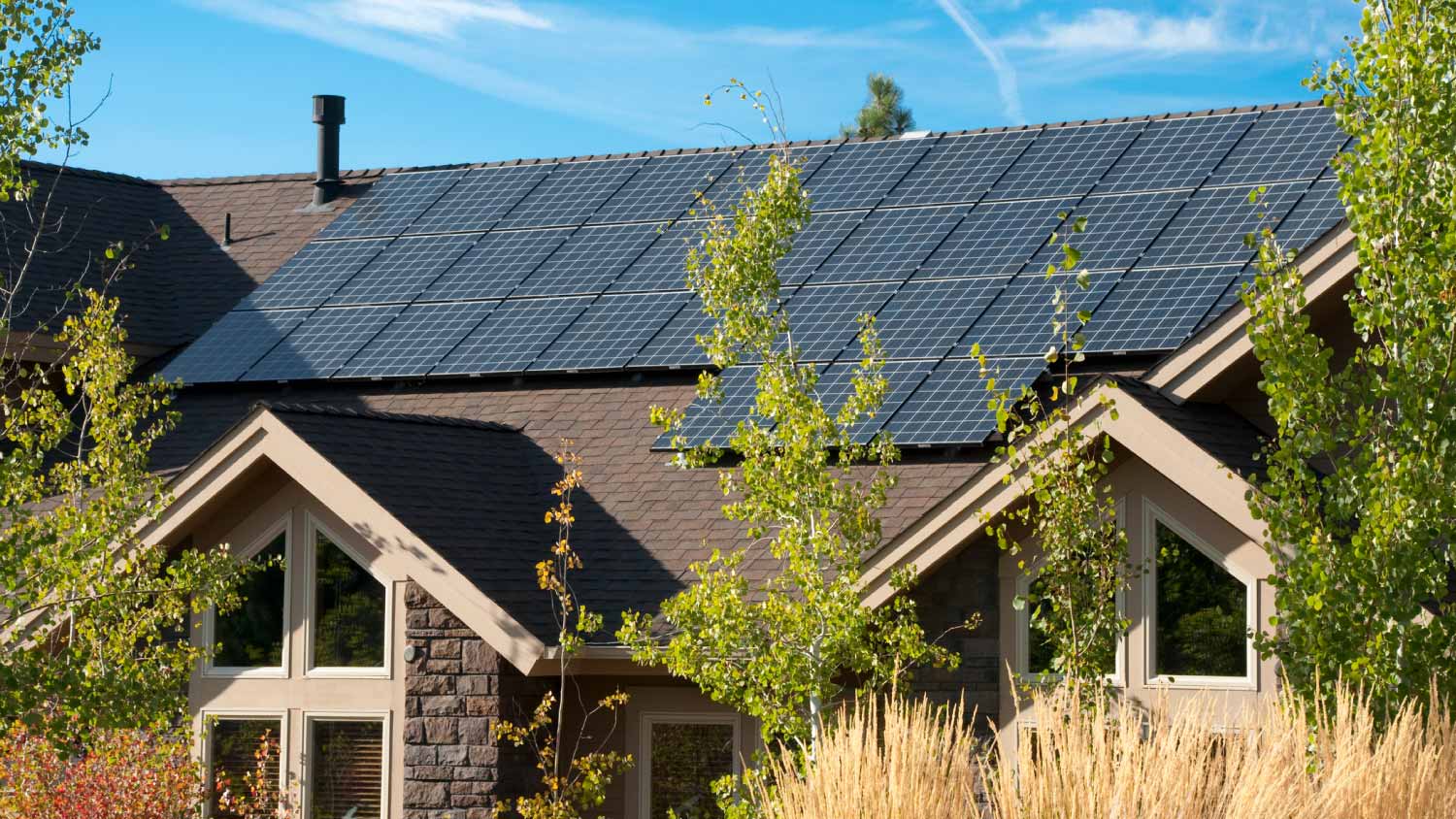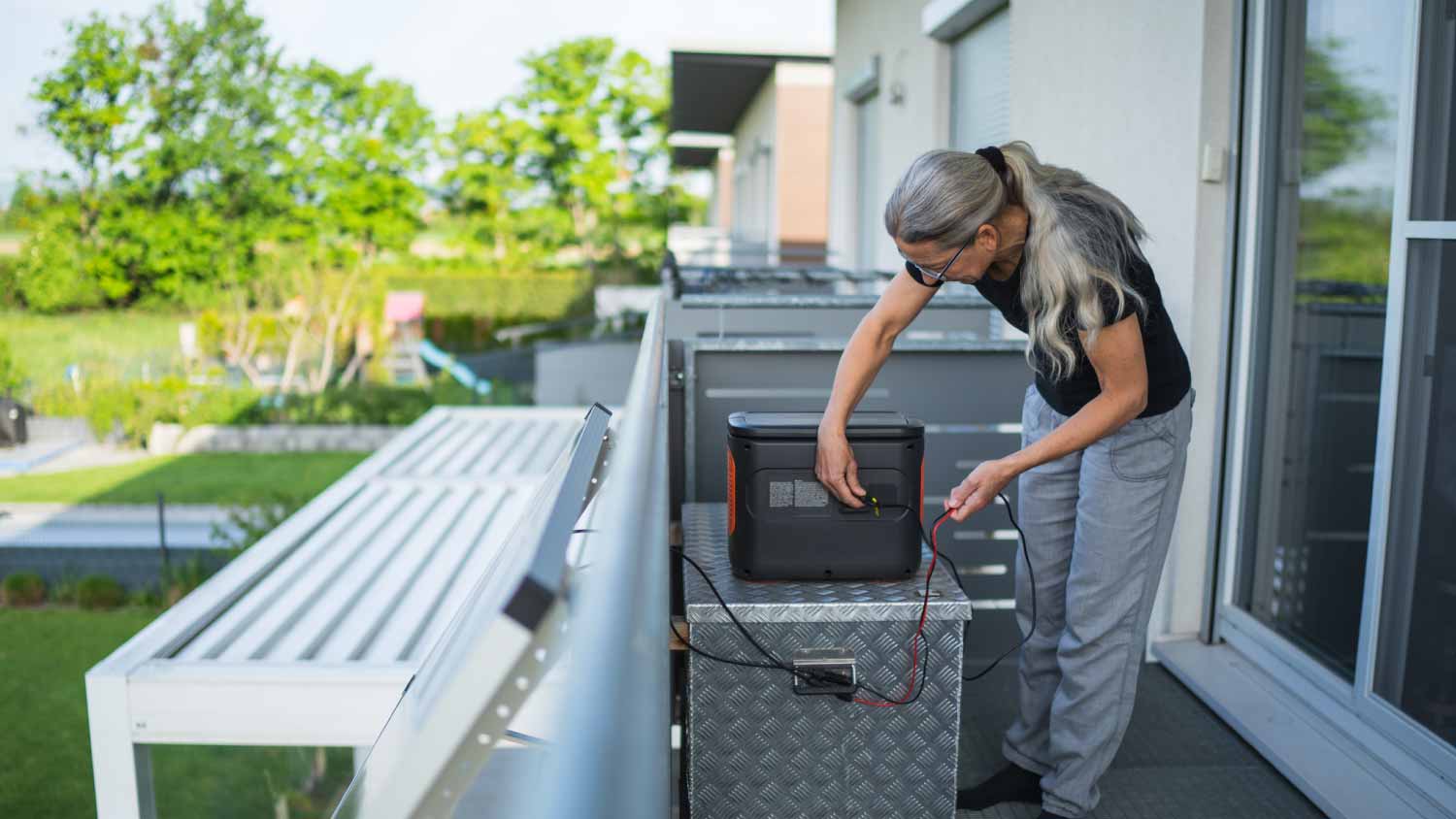What Happens to Solar Power When the Batteries Are Full?
How full is too full?


If you have a grid-tied solar panel system, you may be able to sell energy back to the grid when the batteries are full.
If you have a stand-alone solar panel system, you have a few options, including doing a dump load or just not charging the battery.
Overcharging the battery can damage it and lead to less efficiency.
Extra solar power is great, right? Well, that actually depends on how much extra power you have. When solar batteries are full, they can move excess energy back to the grid or use it to power other appliances, depending on the type of system you have. But in some cases, batteries can become too full, leading to unwanted consequences. Let’s take a closer look at your options.
What Happens to Solar Power When Batteries Are Full?
If your solar panels are producing enough excess energy that the batteries become full, there are a few different things that happen, and they depend on the type of system you have. Among the pros and cons of solar battery storage are the ways you can use any excess energy beyond what the battery can hold.
Grid-Tied Systems
For grid-tied systems, excess energy can be directed back to and sold back to the grid, allowing you to lower your energy costs further. If you’d rather use the extra energy, you can purchase and install more solar batteries to increase your capacity to store it.
Off-Grid Systems
If you have an off-grid, stand-alone solar power system, then it’s important to actively manage your solar battery storage. You don’t want the batteries to get too full because they will degrade faster if they are continually holding a full charge. If the battery in your off-grid system becomes fully charged, any additional energy generated from the solar panels will not be stored until battery space becomes available or the energy is needed to power the home.
You can also use extra energy beyond what the batteries can hold to do a dump load, which essentially “dumps” the excess power into another appliance, such as a water heater, that will convert the energy into another form, like heat. This means that the energy can be essentially stored and used later.
You could also direct energy to a solar generator for later use or purchase additional batteries if you find you are consistently reaching capacity and need more storage.
Can Solar Batteries Get Too Full?

Oddly, the answer to this question is yes. When solar batteries get too full, the charging and discharging process can actually weaken the battery’s ability to store energy. The less you discharge your batteries, the longer they will potentially last. Depending on the type of solar batteries you have, overcharging them can also lead to other consequences such as damaging the battery itself or, in rare cases, the battery catching on fire.
If your batteries keep getting too full, you may not have the right size solar battery for your home and should consider installing more batteries to take advantage of the extra solar power. Discussing your energy needs with your local solar panel installation professional can ensure you have a properly sized system, and they can also help you understand your options if the batteries get full.
How Can I Prevent Overcharging?
To prevent your solar batteries from overcharging, you can install a charge controller, which monitors the battery’s state of charge (SoC). The proper SoC will allow the battery to perform longer, and the charge controller or battery management system will monitor how much charge the battery is receiving and stop charging it when it becomes full.
Frequently Asked Questions
If you’re deciding between a solar battery versus a generator for the best backup power solution, you can take a few factors into consideration. Solar batteries are quiet while generators can be quite loud. Generators have a lower up-front cost, but they require fuel and ongoing maintenance while solar batteries are more expensive but don’t have many ongoing costs.
To ensure batteries stop charging when they’re full, you’ll need to install a charge controller that determines when the battery is full. Once the battery is fully charged, the charge controller will stop the energy flow or divert the energy to the grid or other appliances. Without a charge controller, the battery may continue to charge, which can lead to less productivity and potential damage.















